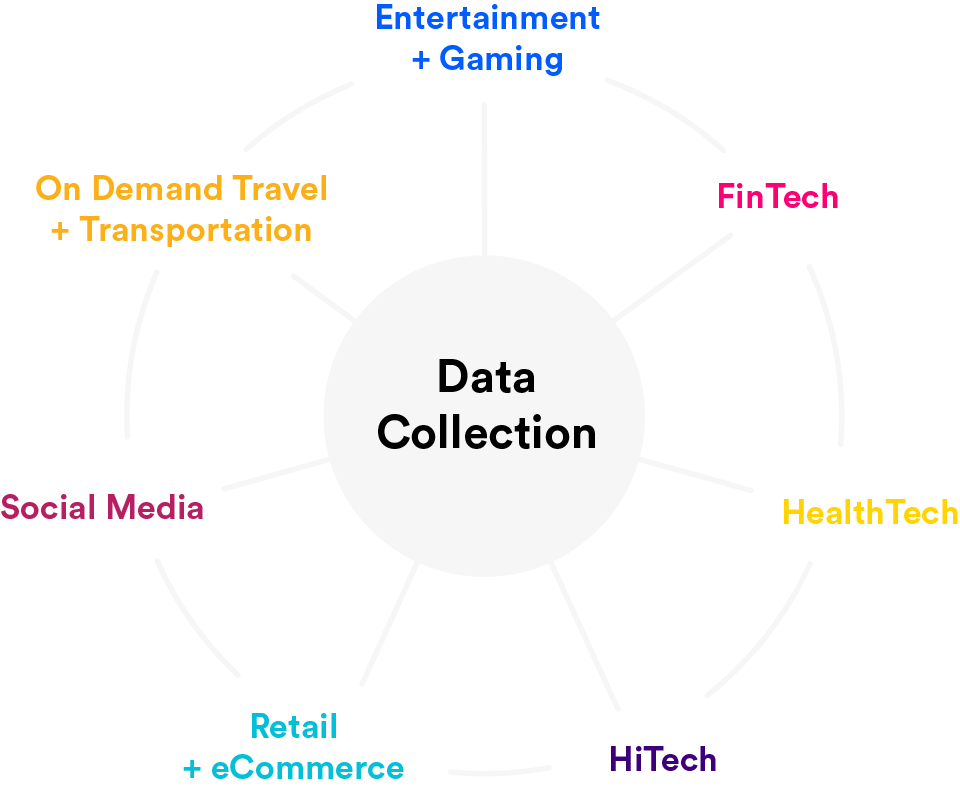Industry Knowledge
Data Collection Services: A How-To Guide
Data collection provides machine learning models with enough real-world examples to learn from to create accurate predictions. Here’s an in-depth guide when considering data collection services.
AI models are only as good as the datasets they’re trained with. If the data collected for training both machine learning and deep learning models is insufficient or reflects bias, it’ll affect the performance and consistency of any AI model. That’s why a lot of industries now rely on data collection services for collecting robust, insightful data securely and reliably to make informed business decisions.
Related: An Introduction to AI Training Data
What are data collection services?

Data collection services are used to gather datasets in various formats through online and offline tools to gain actionable insights. It includes various techniques to collect, measure, and annotate different data types that are required by many businesses to effectively perform day-to-day operations, get better market insights, and, of course, more effectively train AI and machine learning models.
To ensure successful data analysis for any project, it is significant to have a vast amount of high-quality data samples that can be fed into machine learning algorithms and adapted for specific application scenarios. No matter what industry you’re in or the kind of model you’re building, data collection is hugely important to build accurate AI, achieve business goals, and ultimately provide an improved customer experience.
Types of data collection services for machine learning
The data collection process can be time-consuming. However, it is critical for the success of your machine learning model. Companies either outsource data collection services or rely on existing information or internal resources to collect valuable data using different methodologies that would best suit the requirements of the project at hand.
- Text Collection
Text data collection is the process of collecting a large amount of data in the form of text files in various languages and formats to extract useful information. An example of this can be extracting and organizing data from notes or descriptions of bank papers such as loan applications that are required to understand a loan applicant’s profile, the purpose of the loan, and more to optimize the machine learning model in the banking sector.
Text datasets can be prepared by extracting data from chatbots, documents, receipts, and more. Collected text data can further be annotated using various techniques like sentiment analysis, summarization, and keyphrase extraction to provide models with the context they need to understand written language.
- Audio & Speech Collection
Audio data collection has become an important tool in machine learning to recognize spoken language. Automatic speech recognition technologies need a large number of conversational inputs to be collected in various languages and dialects to accurately understand the meaning of human sentences and enhance natural language models.
Audio datasets are used for training virtual assistants such as smart speakers that recognize and respond to human speech and perform day-to-day tasks such as playing music, ordering food delivery, and making calls. These datasets are further optimized to train AI models through services like audio transcription, data evaluation, and sentiment analysis.
- Image & Video Collection
The process of image data collection involves collecting and interpreting visual data in the form of images for the proper functioning of machine learning models for computer vision, natural language processing, and more. Similarly, in video data collection, data in the form of videos are collected and annotated to power AI models.
The datasets required for image and video annotation need to be customized for a given project and should include a diverse range of samples covering a lot of factors like demographics, lighting conditions, and environment, among others, to ensure high accuracy and quality results.
These image and video datasets are used to build AI models for many industries like social media, real estate, and automotive companies.
Challenges in Collecting Data for Machine Learning
Data collection services face a lot of challenges that can have a profound effect on the accuracy and performance of a machine learning model.
- Insufficient datasets
For the success of a machine learning model, it is crucial to acquire vast amounts of data that is relevant to the project's needs. For example, when developing a chatbot, one needs a large amount of data like chat logs, email archives, and website content that can help the model to understand the natural flow of human conversation. However, a lack of sufficient chatbot training data such as multilingual samples can end up causing disruptions to the chatbot model.
- Poor data quality
At times, even after collecting a sufficient amount of data, there can be an issue with quality, such as missing, biased, or corrupt datasets. As a result, such data needs to go through robust reprocessing to identify issues and rearrange the samples as per the needs of the machine learning model.
- Lack of training in data collection
Another challenge faced during data collection is training the team responsible for collecting the samples through different sources. If they’re not properly trained about how to handle and annotate structured or unstructured datasets for a particular project, they might end up collecting poor quality or insufficient data that would lead to the model working inappropriately.
- Data bias
Data bias in machine learning can result in discriminative model behavior such as faulty predictions and offensive results. In machine learning models, biased datasets are identified as samples that are overweighed or represented more than others due to errors in human reporting or selection bias. Such biased data can cause the model to give erroneous results.
Benefits of Outsourcing Data Collection Services
Due to the many challenges faced in collecting data, it is recommended to outsource data collection services to an experienced third-party vendor with sufficient resources and expertise to handle a large-scale data collection project. Among the benefits of outsourcing data collections services are:
- Improved Data Quality
A huge advantage of outsourcing data collection is improving the quality of the datasets for your machine learning model. Outsourcing companies with AI expertise have access to a vast amount of data sourced accurately and efficiently through various methods. They give high importance to maintaining the quality of the samples collected through rigorous quality controls and checks to ensure the success of any training model.
- Data Security
Outsourcing companies give extra emphasis to maintaining data security with strict protocols in place to ensure the security of any client data. Most companies make it mandatory for employees to go through data privacy and security compliance training, and have them sign non-disclosure agreements to maintain data confidentiality.
- Cost-effectiveness
Another benefit of outsourcing data collection services for your project is cost efficiency, as outsourcing companies already have the required technology and infrastructure in place to execute any project efficiently. This would allow you to lower overhead costs and your internal workforce can focus on other key product areas.
Related: How to Select a Data Labeling Company
Outsourcing Data Collection Services with TaskUs
With more than 10 years of experience in providing data labeling and data collection services in over 30 languages, TaskUs is the partner of choice for more than 100+ clients worldwide.
When a leading global social media and technology company needed audio data to train their virtual assistant and provide a better customer experience, TaskUs provided high-quality audio training data, which enabled the client to grow their Automated Speech Recognition program to cover more countries.
References

We exist to empower people to deliver Ridiculously Good innovation to the world’s best companies.
Services







